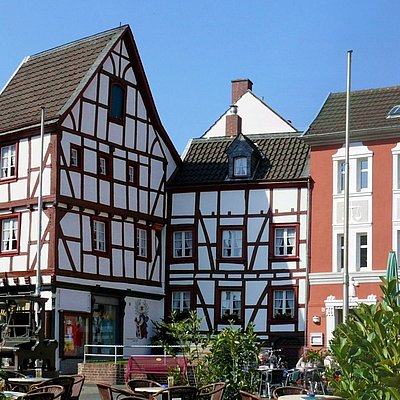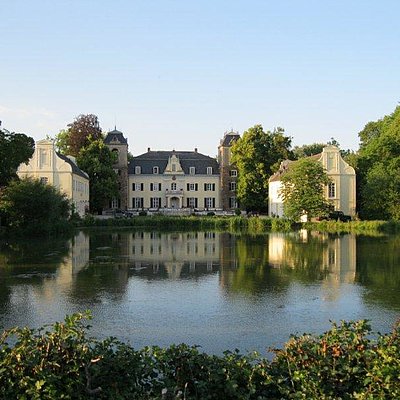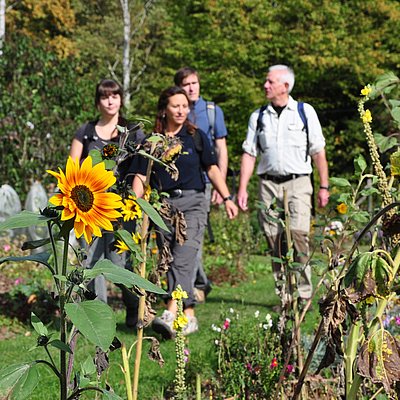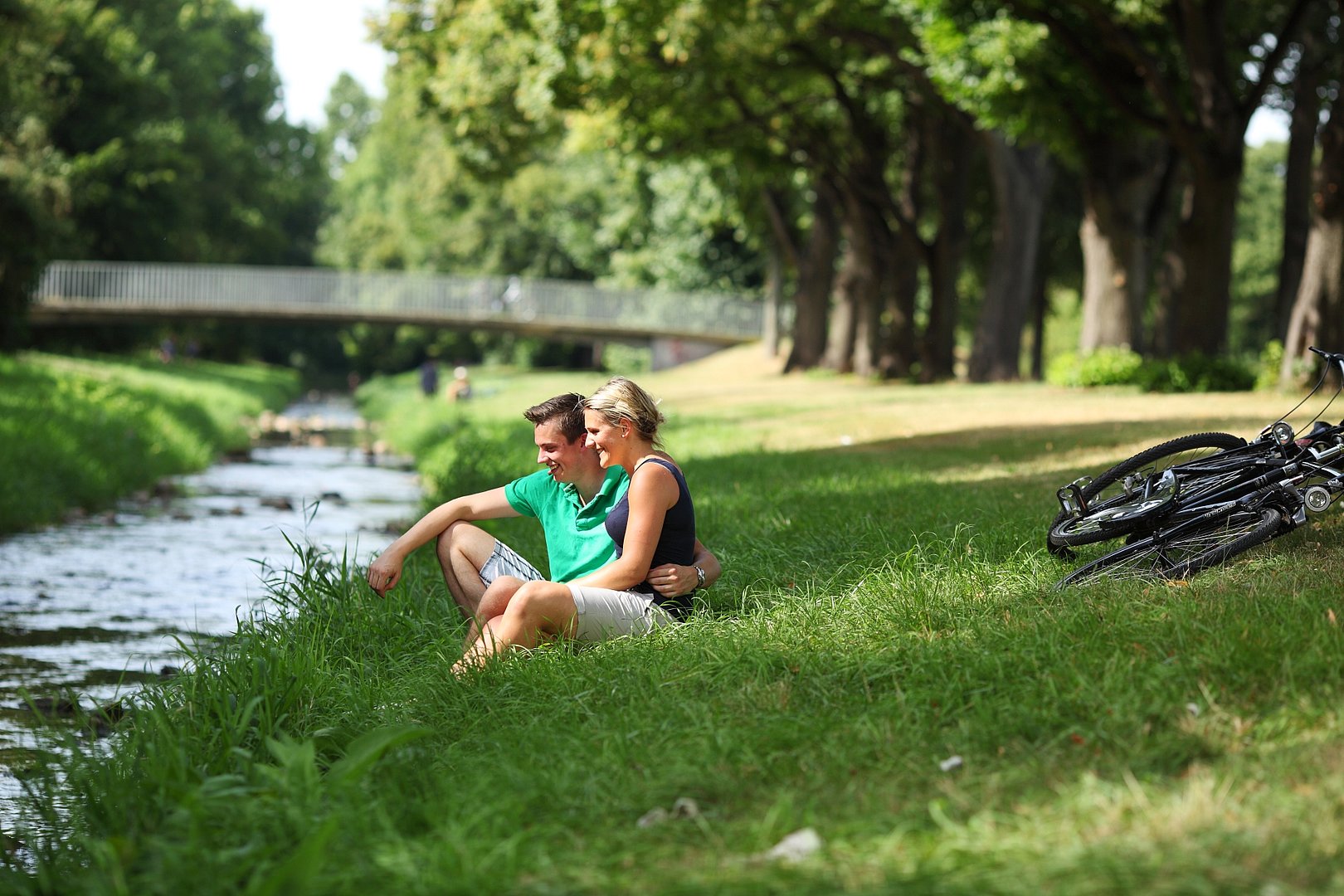District Town of Euskirchen

The first written record about Euskrichen dates back to the Treaty of Meersen as "Augstchirche" (probably for: Church in the meadow) from the year 870.
Euskirchen has been in possession of municipal law since 1302. In 2002 the 700th anniversary of the town status was celebrated with many events. In 1827 Euskirchen became the county seat of an entire region.
The town, with its population of 58,000, is in constant upward development including numerous central service institutions to cover a population of more than 100,000.
The mixture of preserved history and modern shopping town character makes the difference. Parts of the old town wall and three of the towers that were formerly part of the town fortification stand side by side with modern architecture. Three conveniently located multi-storey car parks as well as many parking lots make it easy for motorized visitors to park their vehicles centrally. In addition, the city bus service provides the possibility to use public transport instead, giving non-motorized people the desired mobility.

Within the medieval town walls, the pedestrian area with major department stores, numerous retail shops and cafes. Some of these have been in business for generations, have helped develop the good reputation of the town as a shopping center.
Euskirchen invites to stroll, shop, and relax between “Alter Markt” (Old Market) and the train station.
Euskirchen also has a lot to offer culturally. In particular, the “Kulturhof” (library, museum) and “Kunstmeile” (Art Mile) Kölnerstraße present special cultural highlights.
The metropolitan area of Euskirchen is one of the regions of Germany with the most moated castles. Twelve castles are located around the town. No two castles are alike: They are ruins, medieval remains, some of them converted into baroque castles or preserved as monumental medieval testimonies. Apart from the “Hardtburg”, all castles are privately owned and can only be visited as part of special events, such as the Euskirchener Burgenfahrt (Euskirchen Castle Tour).

An excellent cycle path network through the district town of Euskirchen, which is a member of the Association Bicycle Friendly Cities and Municipalities in NRW, allows an easy exploration of the area by bicycle.
The Erft-Radweg and the Wasserburgen-Route also leads you through Euskirchen and are signposted accordingly. Activities such as hiking and walking are ideal on the Römerkanal-Wanderweg and in the woods around Euskirchen. In particular, the vast forest area around the Steinbachtalsperre and Marbachstausee (Steinbach dam and Marbach dam) is ideal for those who are looking for relaxation.
Pure relaxation is guaranteed when visiting the “Therme Euskirchen” (indoor pool / spa). The "Palm Paradise", Thermal bath and 10 thematic saunas guarantee a break from everyday life.
For traveling back to the past, you do not need a time machine. This fascinating experience is provided by a visit to the Euskirchen LVR-Industrial Museum, the former cloth factory Mueller in Euskirchen-Kuchenheim. Here you can travel back many decades. The factory was founded in 1894, and when the business of the Müller cloth factory deteriorated in 1961 the owners simply locked the gates and left everything standing as it was on their last day of work.
Information about Euskirchen and the North Eifel are available at the tourist information center in the customer center of the Stadtverkehr Euskirchen SVE (city traffic Euskirchen) at the railway station in Euskirchen. The cycle and hike train station Euskirchen is the ideal starting and destination point for hiking and cycling.

